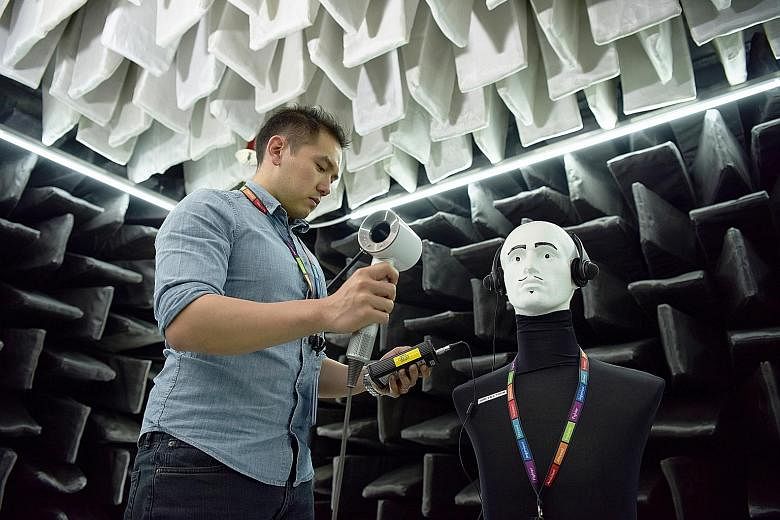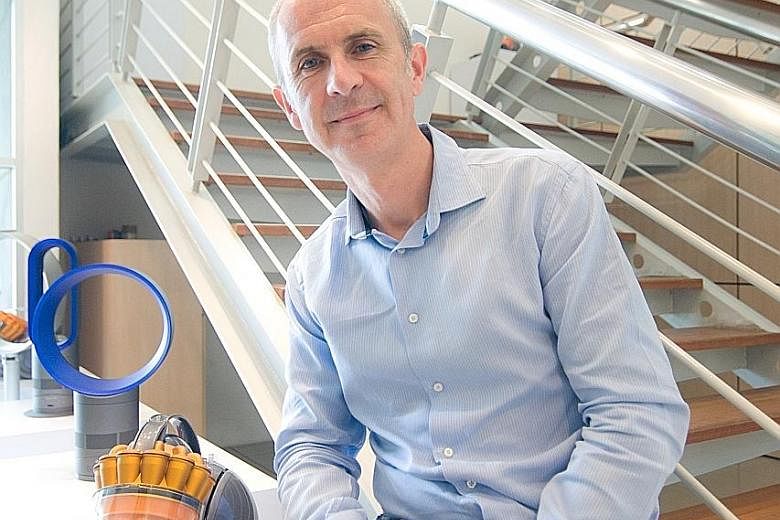British home appliance manufacturer Dyson will transfer its head office's registration to Singapore, a decision that comes just months after it announced that it will set up its first electric car plant here.
This means Dyson - famed for its bagless vacuum cleaners and bladeless fans - will become a Singapore-based business and primarily be regulated by the law here.
"What we have seen in the last few years is an acceleration of the opportunities to grow a company from a revenue perspective in Asia," Dyson chief executive Jim Rowan said in a media conference yesterday.
"All of our manufacturing and a majority of our future investments will be in Asia," he added, noting that regional countries such as China have grown at a rapid pace to the size of mature markets like the United States and Japan.
Technology adoption in places like India and South-east Asia is expected to accelerate in the coming years as well, he said. This is among the reasons Dyson's chief financial officer and chief legal officer will be relocated to Singapore very shortly, and its team built up here.
Mr Rowan said the decision did not have anything to do with Brexit or tax benefits, but that it is for the company to be in the best position to secure opportunities and keep an eye on its investments. Mr Rowan is based in Singapore as well.
He said Brexit is unlikely to impact Dyson, given that its supply chain is based in South-east Asia. He also said Singapore's corporate tax rate of 17 per cent - lower than Britain's - would mean only a negligible difference in what would be paid.
He stressed that the move to relocate to Singapore was an "evolu-tionary decision" due to the changing landscape.
Dyson's centre of gravity has been shifting towards Asia, which in 2017 generated almost 75 per cent of its revenue growth.
The firm already employs 1,100 people here, and plans to double the size of its research and operations. Its Singapore Technology Centre in Science Park will double in size as well. Its global research and development team grew to 5,853 engineers and scientists last year, with investments deepening in areas including energy storage and robotics.
Dyson has also announced that its profits last year broke £1 billion (S$1.8 billion) for the first time, growing 33 per cent to £1.1 billion from 2017. This came as investments in advanced manufacturing and research reached a new high, while revenue growth continued, in part on the back of new products such as its new hairdryer and air purification technology.
The firm also announced that former Infiniti Motor Company president Roland Krueger will join Dyson in April, in the lead-up to the expected completion of its electric car manufacturing facility here by next year. The first model could be rolled out by 2021.
Mr Krueger will be based in Singapore as well, and will oversee all aspects of Dyson's automotive project as it approaches launch.
The company has about 430 people working on the car, and expects this to grow as well. Its Singapore manufacturing facility is part of its £2 billion move into automobiles.
Singapore's expertise in advanced manufacturing was among the factors that made it an ideal location to manufacture the car, the firm said, adding: "An increasing majority of Dyson's customers... are now in Asia. This shift has been occurring for some time and will quicken as Dyson brings its electric vehicle to market."
The company ceased British production of domestic appliances in 2003. It has facilities in Malaysia and the Philippines as well.
Last year, Dyson continued its £31 million investment in higher education in Britain, where core creative and engineering parts will remain.



